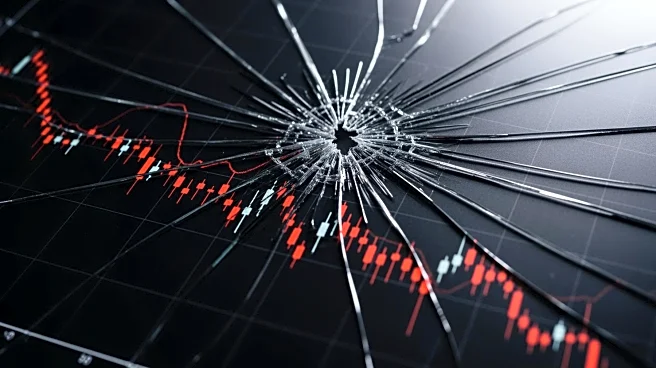What is the story about?
What's Happening?
The Premier League has introduced a new metric called defensive contribution points in Fantasy Premier League, which is reshaping how managers select players. This metric rewards players for their defensive efforts, such as tackles and interceptions, in addition to traditional points for goals and assists. Players like Antoine Semenyo and Erling Haaland have been highlighted for their consistent performance, with Semenyo's defensive contributions proving pivotal in Gameweek 5. The introduction of this metric is changing the perception of what constitutes a 'blank' in Fantasy Football, as players can now earn points even in goalless matches.
Why It's Important?
The introduction of defensive contribution points is significant as it alters the strategy for Fantasy Football managers, who must now consider defensive capabilities alongside offensive skills. This change could lead to increased value for defensive-minded players and potentially shift investment towards midfielders and defenders. The new metric may also influence real-world player evaluations and contract negotiations, as players who excel defensively gain recognition. Fantasy managers who adapt to this change could gain a competitive edge, while clubs might see shifts in player popularity and market value.
What's Next?
As the season progresses, Fantasy managers will likely adjust their strategies to incorporate more players who excel in defensive contributions. This could lead to a reevaluation of player selections and formations, with a potential increase in the popularity of formations that emphasize defense. Clubs may also respond by focusing on developing players with strong defensive skills, knowing their value in Fantasy Football has increased. The impact of this change will be closely monitored by both Fantasy managers and clubs as they adapt to the evolving landscape.
Beyond the Headlines
The introduction of defensive contribution points may have broader implications for how players are perceived and valued in the sport. It could lead to a cultural shift where defensive skills are more celebrated, potentially influencing youth training programs and scouting priorities. Additionally, this change might affect the way media and analysts discuss player performances, with a greater emphasis on defensive metrics.















